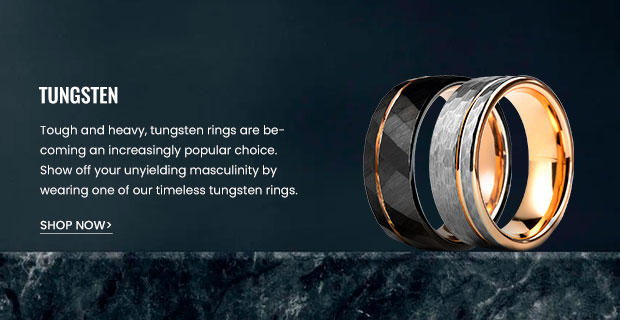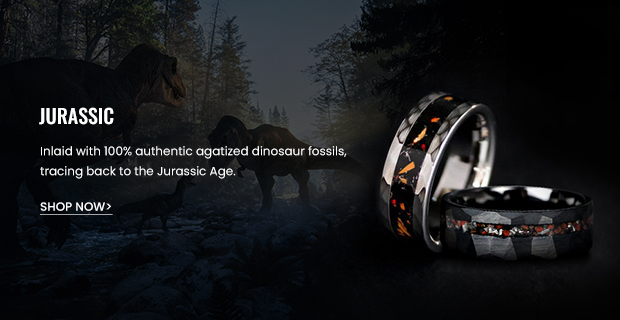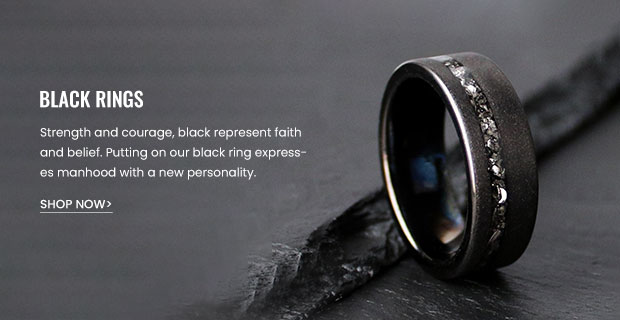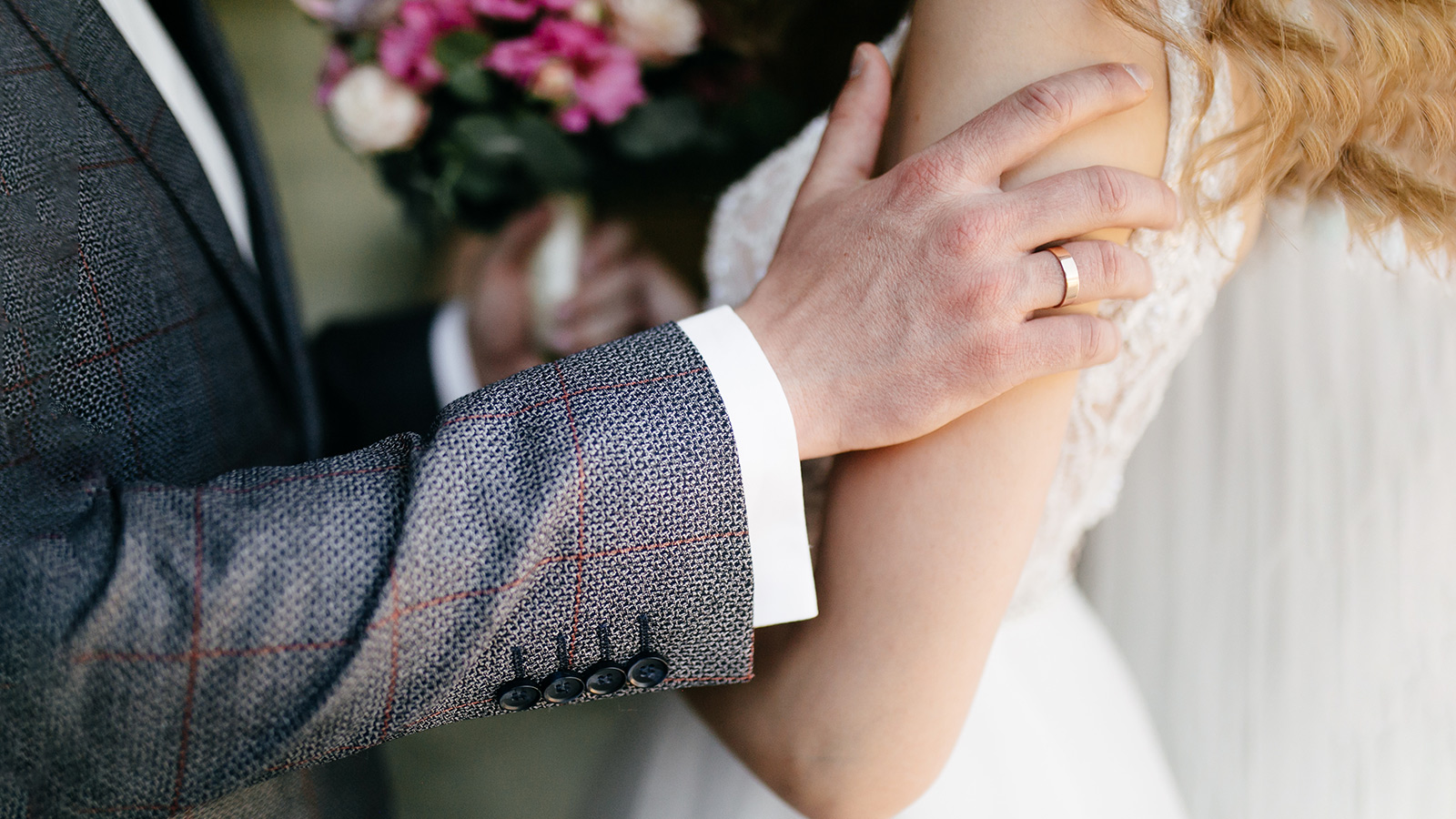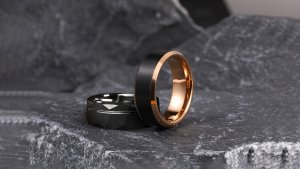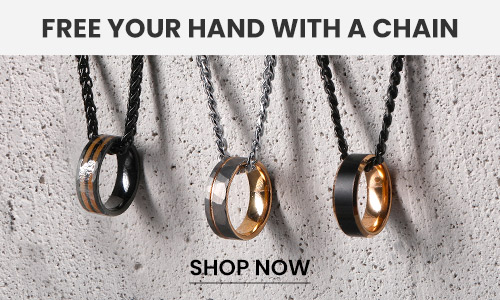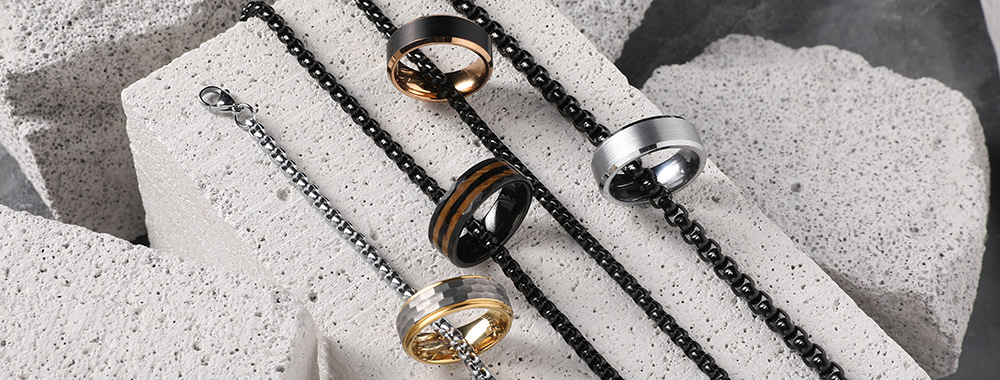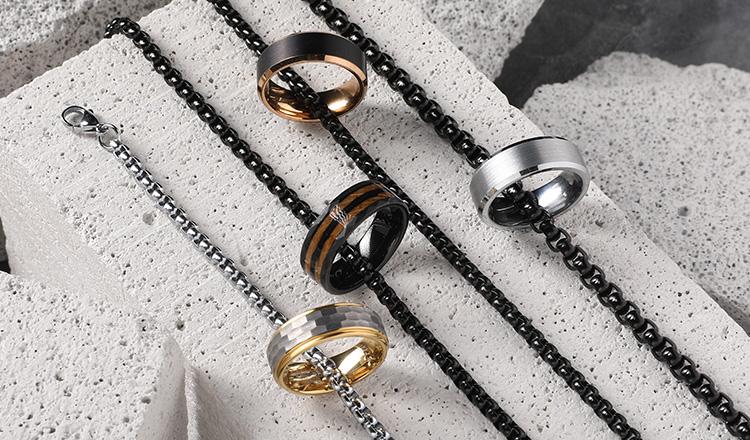Throughout history, men’s wedding bands have served as a symbol of love, commitment, and unity. As times have changed, so too have the materials used to craft these meaningful rings. Today, grooms-to-be are faced with a wide array of options, each with its own unique characteristics and appeal. This article will help you make an informed decision that reflects your lifestyle, preferences, and the enduring sentiment behind this significant piece of jewelry.
| Material | Pros | Cons |
|---|---|---|
| Gold | Timeless, variety of colors, inherent value | Softer – prone to scratches, expensive, may cause allergic reaction |
| Platinum | Durable, scratch-resistant, sophisticated look, hypoallergenic | Expensive, heavier, fewer design options |
| Tungsten Carbide | Extremely durable, scratch-resistant, affordable | Can’t be resized, heavy, may shatter under pressure |
| Titanium | Lightweight, durable, hypoallergenic | Can’t be resized, limited engraving options, can scratch |
| Stainless Steel | Durable, affordable, low maintenance | Limited style options |
| Silicone | Flexible, safe for active lifestyles | Less traditional look |
| Wood/Bone | Unique, eco-friendly | Not as durable |
| Cobalt Chrome | Hypoallergenic, allows intricate designs | Less traditional |
Overview of Popular Materials for Men’s Wedding Bands
Before we examine each material in detail, let’s briefly introduce the most popular options for mens wedding bands:
- Gold: A timeless classic, gold comes in various colors (yellow, white, rose) and karats (10K, 14K, 18K), offering a range of durability and price points.
- Platinum: Known for its strength, durability, and hypoallergenic properties, platinum is a premium choice that maintains its color over time.
- Tungsten Carbide: This innovative material is scratch-resistant, tarnish-proof, and highly durable, making it a practical choice for daily wear.
- Titanium: Lightweight, strong, and hypoallergenic, titanium is an increasingly popular choice for its comfort and modern appeal.
- Alternative Materials: These include stainless steel (affordable and durable), silicone (flexible and safe for active lifestyles), wood and bone (unique and eco-friendly), and cobalt chrome (strong and hypoallergenic).
The popularity of these materials varies based on cultural traditions, regional preferences, and personal taste. Ultimately, the best material for your wedding band is the one that aligns with your individual style, budget, and lifestyle.
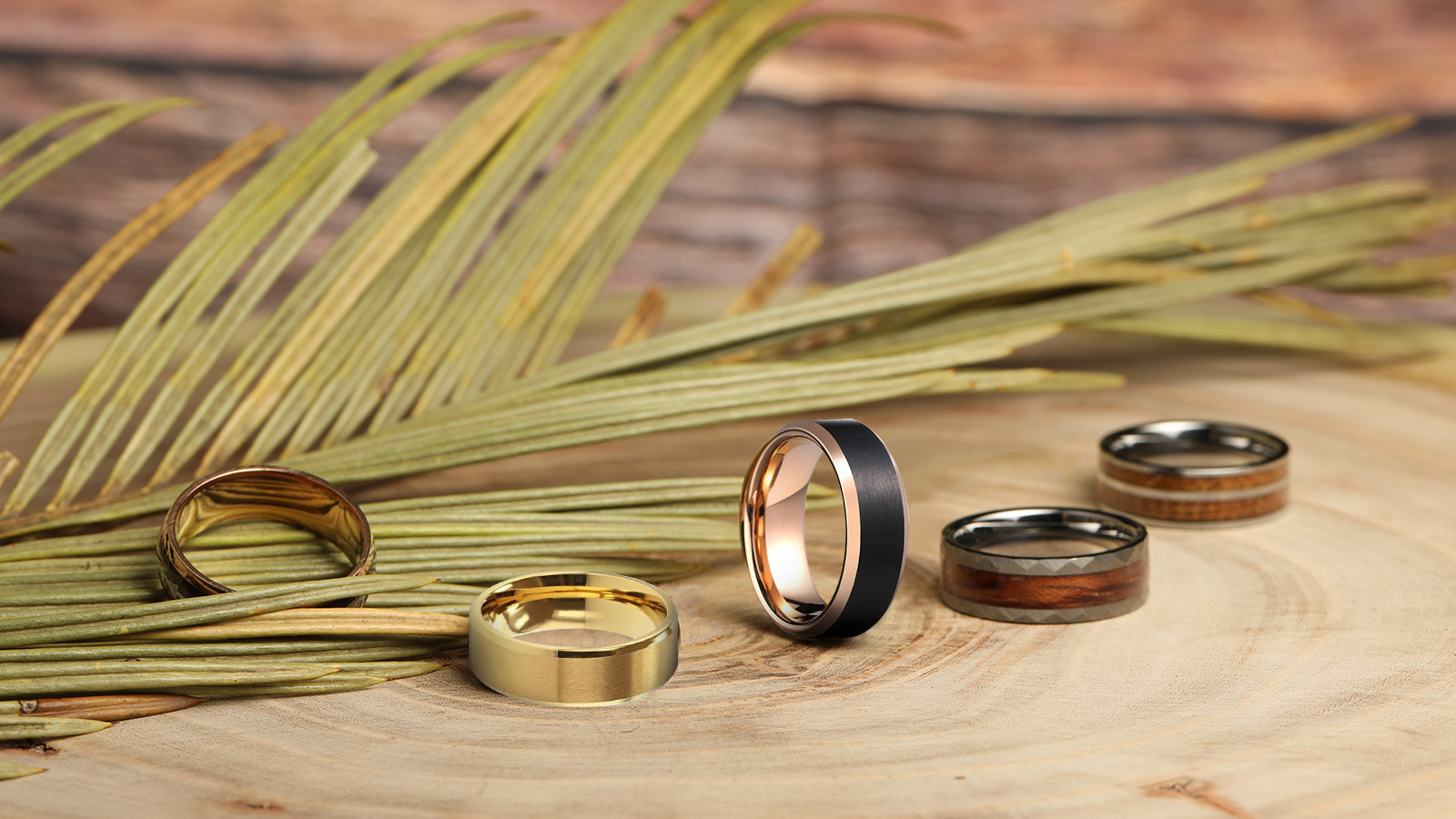
Gold: A Timeless Classic for Men’s Wedding Bands
Gold has been a cherished choice for men’s wedding bands for centuries, prized for its timeless beauty and inherent value. The three main variations of gold are yellow, white, and rose, each offering a unique appearance.
Yellow gold ring is the traditional choice, with a warm and elegant look. White gold provides a modern and sleek appearance, while rose gold has gained popularity for its romantic and unique pinkish tint.
Gold’s enduring appeal lies in its timeless appearance and the variety of colors available to suit personal styles. However, it is softer than some alternative materials, making it more prone to scratches. Gold is also more expensive and may cause allergic reactions in some individuals.
Platinum: A Durable and Sophisticated Choice for Men’s Wedding Bands
Platinum has become a popular choice for men’s wedding bands due to its durability and sophisticated appearance. This strong, white metal is resistant to wear and tear, making it perfect for everyday use.
Compared to gold, platinum is more durable and requires less maintenance. Its natural white color eliminates the need for replating, which is common with white gold, saving you time and money.
Platinum is also hypoallergenic, making it ideal for those with sensitive skin. Its sleek, modern look is appealing to many.
However, platinum is more expensive than gold and is a relatively heavy metal, which may take some getting used to. There may also be fewer design options available compared to other materials.
Tungsten Carbide: A Strong and Modern Choice for Men’s Wedding Bands
Tungsten carbide is a newcomer in the world of men’s wedding bands, gaining popularity for its strength and modern look. This high-tech alloy combines tungsten and carbon, creating a scratch-resistant and tarnish-proof material.
Tungsten carbide’s durability is a major advantage, as it resists scratches and everyday wear better than traditional metals like gold and platinum. This makes it perfect for men with active lifestyles or hands-on jobs.
The dark, glossy finish of tungsten carbide offers a bold, contemporary appearance that complements modern styles. It’s also more affordable than gold or platinum, making it a great choice for those seeking a high-quality, durable band on a budget.
However, tungsten carbide cannot be resized, so getting the correct size is crucial. It’s also a heavy material that may not suit everyone. While extremely strong, tungsten carbide can shatter under extreme pressure instead of bending like other metals.
Titanium: A Lightweight and Durable Option for Men’s Wedding Bands
Titanium is perfect for men seeking a lightweight yet durable wedding band. Its impressive strength-to-weight ratio means it’s comfortable to wear while still being incredibly resilient.
Titanium is also hypoallergenic, ideal for men with sensitive skin. Its sleek, modern appearance and affordable price have made it increasingly popular.
However, titanium cannot be resized, so getting the right fit is crucial. Its hardness limits engraving and intricate design options. While highly durable, titanium rings can still scratch over time, though scratches can be buffed out.
Alternative and Modern Materials
In addition to the traditional metals, there are several alternative materials gaining traction in the world of men’s wedding bands:
Stainless Steel
Stainless steel offers a practical and affordable option for those seeking a durable, low-maintenance band.
Silicone
Flexible and safe, silicone bands are perfect for active lifestyles and those working in hands-on professions.
Wood and Bone
For a unique, organic feel, wood and bone wedding bands provide a one-of-a-kind look that showcases individual styles.
Cobalt Chrome and Other Alloys
Cobalt chrome and other alloys offer a balance of strength and design, allowing for intricate patterns and a variety of finishes.
Factors to Consider When Choosing a Wedding Band Material
When selecting the perfect wedding band material, consider the following factors:
- Personal style and daily activities
- Allergies and skin sensitivities
- Budget and long-term maintenance costs
- Symbolism and personal significance

Personal Style and Daily Activities
Choose a material that complements your personal style and accommodates your daily routine. For example, if you have an active lifestyle or work with your hands, a durable material like tungsten carbide or silicone may be more suitable than a softer metal like gold.
Allergies and Skin Sensitivities
If you have sensitive skin or allergies, opt for hypoallergenic materials such as platinum, titanium, or cobalt chrome to minimize the risk of irritation.
Budget and Long-Term Maintenance Costs
Consider your budget when selecting a material, but also keep in mind the long-term maintenance costs. While some materials, like gold, may require more upkeep, others, like tungsten carbide, are virtually maintenance-free.
Symbolism and Personal Significance
Your wedding band is a deeply personal symbol of your love and commitment. Choose a material that resonates with you and your partner, whether it’s the timeless elegance of gold or the modern sophistication of titanium.
Finding Your Perfect Men’s Wedding Band Material
When choosing the material for your men’s wedding band, consider your personal style, values, and lifestyle. Each option, from classic gold to modern alternatives like platinum, tungsten carbide, and titanium, has unique properties and benefits. Your wedding band is a symbol of your love and commitment, so take the time to find the material that truly represents your bond. Explore your options and select a men’s wedding band that you’ll cherish for a lifetime.


